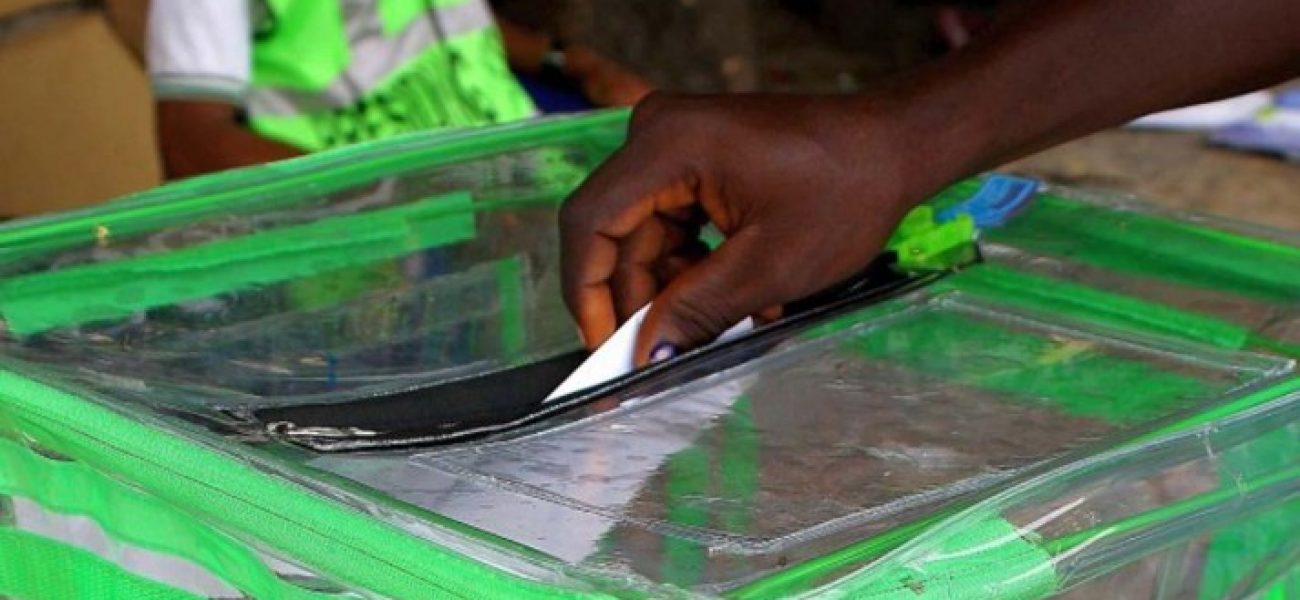There is growing concern or even anger among stakeholders that interests within the National Assembly appear set to scuttle hopes for credible general elections in Nigeria in 2023. In February 2021, the joint committees of the National Assembly on the Independent National Electoral Commission (INEC) and Electoral Matters, in the Senate and House of Representatives, respectively, agreed on a common draft bill. This document was then to be presented to the plenary of both houses, for passage. At the public hearing on the bill in December 2020, Senate President, Dr. Ahmad Lawan had assured that the National Assembly would pass the bill before the end of March 2021. This was not to be as the Senate President changed the timeline to now be that the bill be passed before the end of June 2021. Already into July 2021, the National Assembly is yet to pass the Electoral (Repeal and Re-enactment) Bill. Within the week however, indications have emerged that the draft agreed to by the joint committee may have been tinkered with.
Concern has mounted that some of the progressive portions of the bill may have been altered to make the exercise almost meaningless. Key among the ground-breaking amendments is clause 50(2), where the committee recommended the following for passage: “voting at an election and transmission of result under this Bill shall be in accordance with the procedure determined by the Commission.” Indications are that this clause has been amended to read as follows:
“Voting at an election under this bill shall be in accordance with the procedure determined by the Commission, which may include electronic voting, PROVIDED that the Commission shall not transmit results of elections by electronic means.”
The implication is that were this new provision to pass, it will be illegal for INEC to transmit results of elections by electronic means. INEC has shown over the course of the last few years, especially with recent elections, that electronic transmission of results significantly reduces electoral fraud and delays in announcement of results. INEC has also shown its ability to continue to improve on its use of technology during elections. Seeking to outrightly outlaw INEC’s transmission of results by electronic means would give the country one of the most retrogressive legal interventions in the conduct of elections. It is therefore curious where this attempt to prohibit the use of electronic means of transmission of election results is coming from. This position was never canvassed at any public hearing conducted by the National Assembly leading up to the joint committee’s report, nor was any memorandum submitted or canvassed in support of this. It is however unclear whether the inserted provision in the draft Electoral Bill that prohibits electronic transmission of results is widely held in the National Assembly or if it was inserted by a small clique of interests anxious to shoot down progress in Nigeria’s electoral system.
The use of technology in elections has become important in the light of challenges posed by human factor. In September 2020, INEC held a virtual demonstration of information technology solutions for electronic voting and collation of results by 40 companies, as part of its efforts to deepen the electoral process through the deployment of technology. The Commission also introduced the INEC Result Viewing (IReV) portal and Z-pads for the upload and viewing of polling unit election results in real-time. More recently, it introduced the ‘INEC Voter Enrolment Device’ (IVED) for Continuous Voter Registration (CVR). Several stakeholders lauded these steps, acknowledging that the automation of various election processes will serve to improve the credibility of elections and boost citizens’ confidence. Restricting the use of technology to voting will hamper on efforts of INEC, civil society organisations and other stakeholders to improve Nigeria’s elections through technology.
Another worrying aspect of the draft bill is the concern of significant increase made to the limits of election expenses in clause 88, with that of presidential election increased from N5billion to N15billion; that of governorship election from N1billion to N5billion; Senatorial election from N100million to N1.5billion and House of Representatives election from N70million to N500million. The limit of expenses for House of Assembly election has been increased to N50million from N30million, while that of Chairmanship election to an Area Council of the Federal Capital Territory is N50million from N30million. The dominance of money politics in Nigeria’s elections is detrimental, as finances constitute a major hindrance to women and youth inclusion in politics. Related to this, is clause 90(2)(b), which increases the limit of donation by an individual to a political party, from N1million to N50million. Also, in clause 88(11), the fine for an individual who donates more than N50million to a candidate, has been increased from N500,000 to N5million, with the option of imprisonment removed. This punitive measure will barely serve as a deterrent in this case. With higher limits of election expenses, monitoring campaign expenses will prove more difficult. In addition, limits to campaign expenses have been dramatically increased by these amendments, making it even more difficult for disadvantaged groups including women, young persons and the poor to participate in the electoral process.
It is important for the National Assembly to critically consider the bill, to provide Nigerians with a new, holistic electoral law that will serve to improve the quality of elections and democracy, in general. It is equally important that the bill is passed timeously to allow ample time to make preparations for the 2023 general elections in line with the provisions of the new law.

